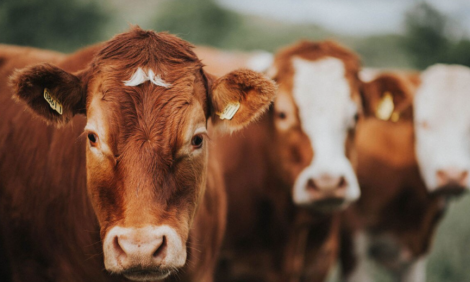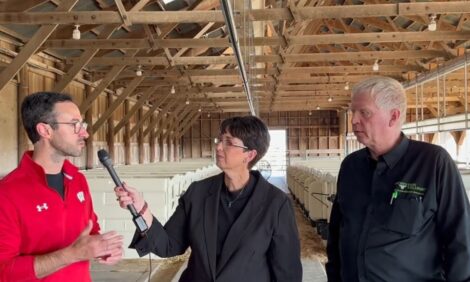



Six Point Plan For Sustainable Dairy Development in Asia
ANALYSIS - A six point plan has been put forward for a regional strategy for sustainable dairy development in Asia.The strategy from the Food and Agriculture Organisation of the United Nations following meeting of Dairy Asia seeks to foster collaboration across the sector and countries to achieve sustainable growth in the dairy sector through market based solutions.
At the same time the FAO wants to ensure that the sector has positive drivers for food security, environmental sustainability and equitable economic growth in the region.
The six point plan includes:
- Increase farm profitability and milk productivity sustainably to meet the increasing demand for dairy products.
- Promote fair and efficient markets, including institutional structures to integrate small-scale producers in the modern value chain.
- Improve dairy food quality and safety.
- Enhance consumer education to enable more informed choices, including emphasis on publicly supported school milk programmes linked to local dairy operations.
- Strengthen stakeholder capacity to cope with production and market risks and for greater innovation.
- Minimise the environmental footprint of the dairy sector and improve mitigation/adaptation measures of the dairy sector to climate changes.
The strategy follows a workshop that took place in Bangkok last year and a follow-up workshop in Anand this spring.
In its report Dairy Asia: Towards Sustainability - Elements of a Regional Strategy for Sustainable Dairy Development in Asia, the FAO said that consumption of milk and milk products has risen rapidly in the region making Asia the strongest growing region for dairy product consumption during the last three decades.
The OECD-FAO Agricultural Outlook forecasts that the demand for milk and milk products in Asia will reach almost 320 million tonnes by 2021 and the region will need to increase milk availability, either by production gains and/or imports, by another 50 million tonnes within a decade.
Milk production and dairying has been a staple activity in South Asia for some time often backed by state aid.
In East and South East Asia – China and Viet Nam in particular – large scale milk production has been backed by private investment as well as significant state aid.
However, traditional smallholder production systems are the major producers across Asia.
The new strategy develops a plan put forward in 2007-8 to support and develop smallholder milk production in the region – Asian Milk for Health and Prosperity
– known as the Chiang Mai Declaration.
The new FAO strategy attempts to also meet the problems of increasing resource scarcity, climate change, growing pressure on feed resources and rising feed prices.
“Investing in sustainable dairy is no longer a question of choice. It is the only option.
Transition to a more sustainable path must consider sustainability in its full complexity encompassing all three of its pillars—economic, ecological, and social,” the report says.
It adds that there is a need for an integrated approach by both big and small across the Asian dairy sector to make the most of the the strength of dairy production systems in Asia and to reduce the impact of environmental and social challenges such as food-feed competition, public health, nutrient overloads and greenhouse gas emissions.
The report says that the new strategy must be inclusive to draw in and support all those within the sector to develop a platform to bring about regional cooperation, knowledge exchange, policy dialogue and “catalytic action”.
“This should be an open, voluntary and iterative process and such a coalition should be given time to evolve and establish credibility among stakeholders,” the report says.
The strategy recommends full support from stakeholders towards formation of a Dairy Asia platform that can capitalise on the unique and complementary strengths of different actors.”
And it adds: “It is important to recognise that sustainability is a process of continuous practice change that addresses social, economic and environmental objectives simultaneously.
“The Dairy Asia platform must strive towards supporting this process by supporting/implementing joint analyses and assessments, facilitating multi-stakeholder dialogue and cooperation at international and local levels, identifying and providing necessary tools and guidance and supporting/promoting innovation for local practice change.”



